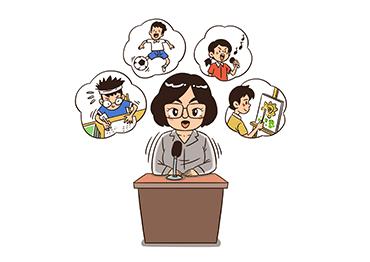Shanghai Observer, a news portal under the Jiefang Daily newspaper: “In today’s socio-economic environment, it’s becoming increasingly difficult to climb the social ladder through the national college entrance exam. Many parents who criticize Lin Xiaoying’s views on the academic rat race insist that exams are the fairest system for selecting talent. But if the macro environment has shifted, should we still force the younger generation into a race that is no longer relevant?”
Changsha Evening News, a major newspaper in Hunan Province: “For a long time, media coverage has focused on the education rat race among urban middle-class families, intensifying parental anxiety, while the struggles of rural and small-town students are often neglected. Lin’s interview and research brings much-needed public attention to this marginalized group. It’s essential for intellectuals to raise questions and make social issues visible – an important step toward addressing these problems.”
Sichuan Observation, a news outlet under Sichuan Radio and Television: “When a child’s schedule is overly regimented, their daily life becomes routine, and eventually, their individuality is lost.”
An interview with a Peking University (PKU) professor has ignited heated discussions about the nature of education and the pressures of China’s competitive scholastic culture.
Speaking with documentary series Thirteen Talk on September 25, Lin Xiaoying, associate professor with PKU’s School of Education, candidly aired her grievances against rural education in China.
Originally from a small county in Changsha, Hunan Province, Lin spent three years conducting field research in 25 rural schools across six provinces. Last year, she published Teens in Rural Schools: A Study on China’s Rural Education, which pointed out that more than half of China’s students attend schools in rural areas across 2,000 counties.
During her interview with host Xu Zhiyuan, Lin criticized the exam-oriented education system, arguing that it stifles the individuality, creativity and vitality of high school students during what should be their most transformative years. She advocated for more opportunities for students to learn “how to play” and explore their interests.
“What’s the use of singing or listening to music? These activities seem trivial but are deeply meaningful. The problem is students are deprived of the chance to discover these essential experiences early on in high school,” Lin said.
She stressed that education should respect individual differences and inspire students to pursue diverse potentials, rather than being fettered by rigid exam-oriented evaluations. “If everything you do is focused only on making a living, you’re essentially a laborer for life,” she added.
Lin’s remarks sparked controversy online. Many agreed, expressing frustration with the intense pressures of the academic “rat race” and arguing that education should cultivate critical thinking and creativity, not just test scores. Others, however, pointed out that Lin herself benefitted from the exam system and argued it is still the fairest way for disadvantaged students to succeed.

 Old Version
Old Version